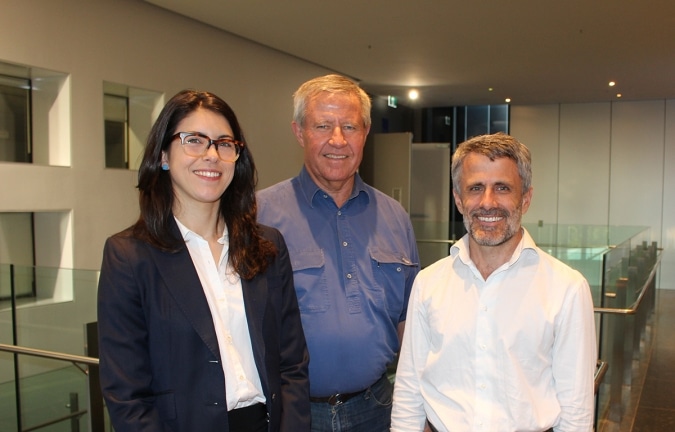
Dalara Foundation support philanthropic fellowship to give long-term certainty to stroke research.

After a mild stroke many people recover and go on to live their lives. But for some, their condition will rapidly deteriorate in the hours following a stroke, and it appears that a build-up of pressure in the brain could be the cause.
Professor Neil Spratt and his team at the University of Newcastle and HMRI are working to address this problem and a new postdoctoral Fellowship will take them closer to developing a solution to this issue.
Postdoctoral researcher Dr Kirsten Coupland has now commenced work at HMRI after several years at Karolinska Institutet in Stockholm, Sweden. She is working with the Spratt team to further build on the lab’s early work into hypothermia treatment after stroke.
“We aim to immediately improve patient outcomes post-stroke, so that those affected can continue to live much the way they did before having a stroke,” Dr Coupland says. “The generous support of the Dalara Foundation will allow me the space and time to pursue difficult scientific problems in the stroke field.”
Allan and Lyn Davies from the Dalara Foundation, long-time philanthropic supporters of stroke research at HMRI, funded the five-year $750,000 Fellowship to give long-term certainty to research. “The opportunity to work with Professor Spratt and his stroke research team seemed like a good fit for us,” Mr Davies said. “We’re keen on seeing the connection between clinical research and clinical action.”
After a mild stroke some patients experienced an alarming rise in pressure in the brain. “We discovered this pressure rise in the first 24 hours after a stroke and we think this is the explanation for why some patients come in with a very mild stroke and get worse,” Professor Spratt says.
The team is examining whether inducing hypothermia can help prevent this swelling. “We will be exploring the benefits of body cooling to reduce brain pressure after stroke,” Dr Spratt explains.
“Preliminary research has revealed that cooling the body to between 32-33 degrees Celsius for around one to two hours can prevent intracranial pressure from rising.”
“This fellowship allows us to offer more job certainty to a researcher and helped us attract the best talent in the world,” Professor Spratt said. “We’re looking forward to working with Dr Coupland to better understand the change in fluid flows in the brain that may cause the pressure change. We want to see if we can halt this rise in pressure and help more people recover from a stroke and live a healthy life.”
HMRI would like to acknowledge the Traditional Custodians of the land on which we work and live, the Awabakal and Worimi peoples, and pay our respects to Elders past and present. We recognise and respect their cultural heritage and beliefs and their continued connection to their land.
Hunter Medical Research Institute
We’re taking healthy further.
Locked Bag 1000
New Lambton
NSW, Australia, 2305


This site is protected by reCAPTCHA and the Google Privacy Policy and Terms of Service apply.
Copyright © 2024 Hunter Medical Research Institute | ABN: 27 081 436 919
Site by Marlin Communications
